Related Research Articles

.

The Korean War was fought between North Korea and South Korea from 1950 to 1953. The war began on 25 June 1950 when North Korea invaded South Korea following years of hostilities between the two countries. North Korea was supported by China and the Soviet Union while South Korea was supported by the United States and allied countries. The fighting ended with an armistice on 27 July 1953.

The People's Liberation Army Navy, also known as the People's Navy, Chinese Navy, or PLA Navy, is the maritime service branch of the People's Liberation Army, and the largest navy per number of ships in the world.

World War III and the Third World War are names given to a hypothetical worldwide large-scale military conflict subsequent to World War I and World War II. The term has been in use since at least as early as 1941. Some apply it loosely to limited or more minor conflicts such as the Cold War or the war on terror. In contrast, others assume that such a conflict would surpass prior world wars in both scope and destructive impact.
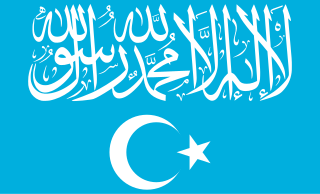
The Turkistan Islamic Party (TIP) is a Uyghur Islamic extremist organization founded in Pakistan by Hasan Mahsum. Its stated goals are to establish an Islamic state in Xinjiang and Central Asia, and eventually a caliphate.
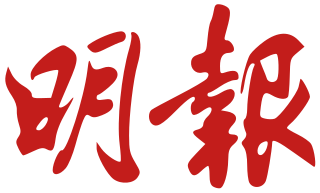
Ming Pao is a Chinese-language newspaper published by Media Chinese International in Hong Kong. In the 1990s, Ming Pao established four overseas branches in North America; each provides independent reporting on local news and collects local advertisements. Currently, of the overseas editions, only the two Canadian editions remain: Ming Pao Toronto and Ming Pao Vancouver. In a 2019 survey from the Chinese University of Hong Kong sampling 1079 local households, Ming Pao was listed as the second most credible paid newspaper in Hong Kong.
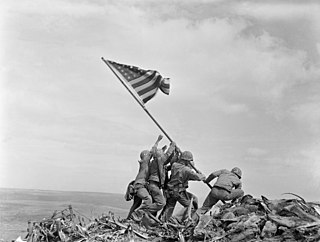
The Pacific War, sometimes called the Asia–Pacific War, was the theater of World War II that was fought in eastern Asia, the Pacific Ocean, the Indian Ocean, and Oceania. It was geographically the largest theater of the war, including the vast Pacific Ocean theater, the South West Pacific theater, the Second Sino-Japanese War, and the Soviet–Japanese War.
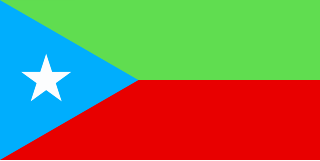
The Balochistan Liberation Army, is a Baloch ethnonationalist militant organization based in Afghanistan. BLA's first recorded activity was during the summer of 2000, after it claimed credit for a series of bombing attacks on Pakistani authorities. BLA is listed as a terrorist organization by Pakistan, the United Kingdom, and the United States.
Terrorism in China refers to the use or threatened use of violence to effect political or ideological change in the People's Republic of China. The definition of terrorism differs among scholars, between international and national bodies and across time and there is no legally binding definition internationally. In the cultural setting of China, the term is relatively new and ambiguous.

A suicide attack is any violent attack, usually entailing the use of explosives, where the attackers have accepted their own death as a direct result of the attacking method used. Suicide attacks have occurred throughout history, often as part of a military campaign, and more recently as part of Islamic terrorist campaigns. Although generally not regulated under international law by themselves, many suicide attacks violate international laws of war such as perfidy or targeting civilians.
Cyberwarfare by China is the aggregate of all combative activities in the cyberspace which are taken by organs of the People's Republic of China, including affiliated advanced persistent threat groups, against other countries.
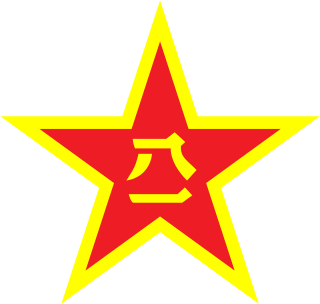
PLA Unit 61398 is the Military Unit Cover Designator (MUCD) of a People's Liberation Army advanced persistent threat unit that has been alleged to be a source of Chinese computer hacking attacks. The unit is stationed in Pudong, Shanghai.
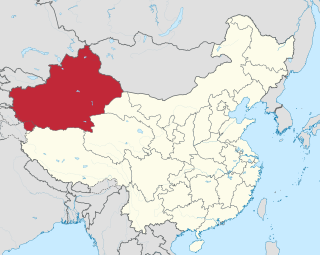
The Xinjiang conflict, also known as the East Turkistan conflict, Uyghur–Chinese conflict or Sino-East Turkistan conflict, is an ongoing ethnic geopolitical conflict in what is now China's far-northwest autonomous region of Xinjiang, also known as East Turkistan. It is centred around the Uyghurs, a Turkic ethnic group who constitute a plurality of the region's population.
Events in the year 2014 in China.

On 1 March 2014, a group of 8 knife-wielding terrorists attacked passengers in the Kunming Railway Station in Kunming, Yunnan, China, killing 31 people, and wounding 143 others. The attackers pulled out long-bladed knives and stabbed and slashed passengers at random. Four assailants were shot to death by police on the spot and one injured perpetrator was captured. Police announced on 3 March that the six-man, two-woman group had been neutralized after the arrest of three remaining suspects.
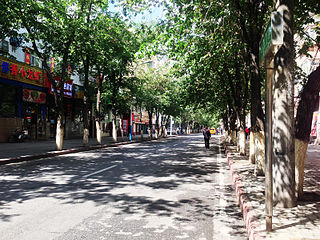
On the morning of 22 May 2014, two sport utility vehicles (SUVs) carrying five assailants were driven into a busy street market in Ürümqi, the capital of China's Xinjiang Uyghur Autonomous Region. Up to a dozen explosives were thrown at shoppers from the windows of the SUVs. The SUVs crashed into shoppers, then collided with each other and exploded. Forty three people were killed, including four of the assailants; more than 90 were wounded, making this the deadliest attack of the Xinjiang conflict. The event was designated as a terrorist attack.
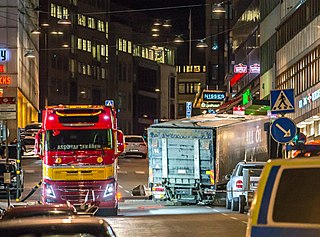
A vehicle-ramming attack, also known as a vehicle as a weapon or VAW attack, is an assault in which a perpetrator deliberately rams a vehicle into a building, people, or another vehicle. According to Stratfor Global Intelligence analysts, this attack represents a relatively new militant tactic that could prove more difficult to prevent than suicide bombings.
References
- ↑ "Deadly knife attack in south China". 2014-03-14. Retrieved 2019-05-28.